Related Research Articles

Robert Lee Frost was an American poet. His work was initially published in England before it was published in the United States. Known for his realistic depictions of rural life and his command of American colloquial speech, Frost frequently wrote about settings from rural life in New England in the early 20th century, using them to examine complex social and philosophical themes.
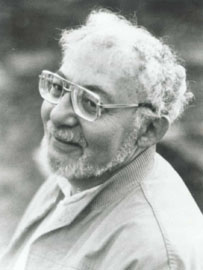
Stanley Lawrence Elkin was an American novelist, short story writer, and essayist. His extravagant, satirical fiction revolves around American consumerism, popular culture, and male-female relationships.
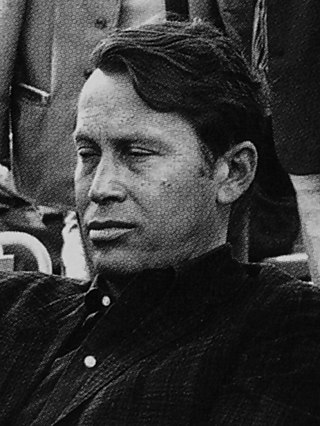
Richard Purdy Wilbur was an American poet and literary translator. One of the foremost poets of his generation, Wilbur's work, composed primarily in traditional forms, was marked by its wit, charm, and gentlemanly elegance. He was appointed the second Poet Laureate Consultant in Poetry to the Library of Congress in 1987 and received the Pulitzer Prize for Poetry twice, in 1957 and 1989.

Edmund Wilson Jr. was an American writer, literary critic and journalist. He is widely regarded as one of the most important literary critics of the 20th century. Wilson began his career as a journalist, writing for publications such as Vanity Fair and The New Yorker. He helped to edit The New Republic, served as chief book critic for The New Yorker, and was a frequent contributor to The New York Review of Books. Wilson was the author of more than twenty books, including Axel's Castle, Patriotic Gore, and a work of fiction, Memoirs of Hecate County. He was a friend of many notable figures of the time, including F. Scott Fitzgerald, Ernest Hemingway, and John Dos Passos. His scheme for a Library of America series of national classic works came to fruition through the efforts of Jason Epstein after Wilson's death. He was a two-time winner of the National Book Award and received the Presidential Medal of Freedom in 1964.

John Crowe Ransom was an American educator, scholar, literary critic, poet, essayist and editor. He is considered to be a founder of the New Criticism school of literary criticism. As a faculty member at Kenyon College, he was the first editor of the widely regarded Kenyon Review. Highly respected as a teacher and mentor to a generation of accomplished students, he also was a prize-winning poet and essayist.
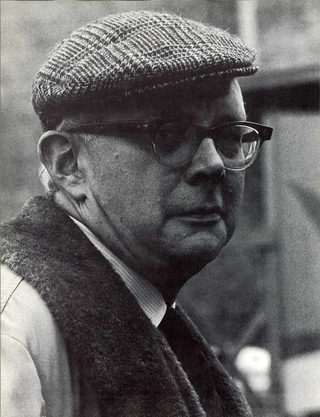
Irving Howe was an American literary and social critic and a prominent figure of the Democratic Socialists of America.

William Howard Gass was an American novelist, short story writer, essayist, critic, and philosophy professor. He wrote three novels, three collections of short stories, a collection of novellas, and seven volumes of essays, three of which won National Book Critics Circle Award prizes and one of which, A Temple of Texts (2006), won the Truman Capote Award for Literary Criticism. His 1995 novel The Tunnel received the American Book Award. His 2013 novel Middle C won the 2015 William Dean Howells Medal.

Robert Lowell Coover is an American novelist, short story writer, and T.B. Stowell Professor Emeritus in Literary Arts at Brown University. He is generally considered a writer of fabulation and metafiction.
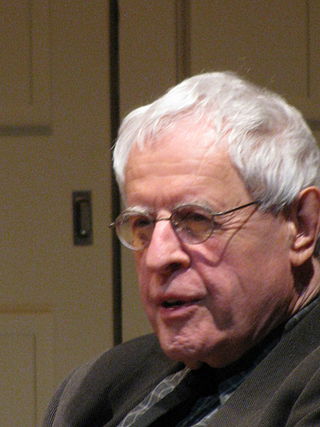
Dušan Simić, known as Charles Simic, was a Serbian-American poet and co-poetry editor of the Paris Review. He received the Pulitzer Prize for Poetry in 1990 for The World Doesn't End, and was a finalist of the Pulitzer Prize in 1986 for Selected Poems, 1963–1983 and in 1987 for Unending Blues. He was appointed the fifteenth Poet Laureate Consultant in Poetry to the Library of Congress in 2007.
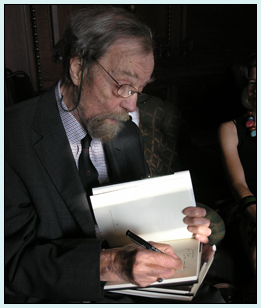
Donald Andrew Hall Jr. was an American poet, writer, editor and literary critic. He was the author of over 50 books across several genres from children's literature, biography, memoir, essays, and including 22 volumes of verse. Hall was a graduate of Phillips Exeter Academy, Harvard, and Oxford. Early in his career, he became the first poetry editor of The Paris Review (1953–1961), the quarterly literary journal, and was noted for interviewing poets and other authors on their craft.
Sir Christopher Bruce Ricks is a British literary critic and scholar. He is the William M. and Sara B. Warren Professor of the Humanities at Boston University (US), co-director of the Editorial Institute at Boston University, and was Professor of Poetry at the University of Oxford (UK) from 2004 to 2009. In 2008, he served as president of the Association of Literary Scholars and Critics. He is known as a champion of Victorian poetry; an enthusiast of Bob Dylan, whose lyrics he has analysed at book length; a trenchant reviewer of writers he considers pretentious ; and a warm reviewer of those he thinks humane or humorous. Hugh Kenner praised his "intent eloquence", and Geoffrey Hill his "unrivalled critical intelligence". W. H. Auden described Ricks as "exactly the kind of critic every poet dreams of finding". John Carey calls him the "greatest living critic".

Sir John Frank Kermode, FBA was a British literary critic best known for his 1967 work The Sense of an Ending: Studies in the Theory of Fiction and for his extensive book-reviewing and editing.
Richard Cory Kostelanetz is an American artist, author, and critic.

John Leonard was an American literary, television, film, and cultural critic.
Bink Noll was an American poet, one of a notable group of poets who graduated from Princeton University in the 1940s and early 1950s. At the time of his death, he was professor of English at Beloit College in Wisconsin.
Mel Watkins is an American critic and author. A former staff member at The New York Times, he has written extensively about comedy and African-American literature and has often appeared as a commentator in television documentaries about entertainment history and performers such as Chris Rock and Richard Pryor.
Scrutiny: A Quarterly Review was a literature periodical founded in 1932 by L. C. Knights and F. R. Leavis, who remained its principal editor until the final issue in 1953. Other editors included D. W. Harding and Harold Andrew Mason.
Sanford Friedman was an American novelist. He was gay and his books often featured LGBT themes.
Richard M. Elman was an American novelist, poet, journalist, and teacher. He was born in Brooklyn, New York. His parents were Yiddish-speaking and came to the United States at the turn of the 20th century from Russo-Poland. His boyhood is captured in his comic novel Fredi & Shirl & The Kids: An Autobiography In Fables.

Norman N. Holland was an American literary critic and Marston-Milbauer Eminent Scholar Emeritus at the University of Florida.
References
- ↑ Bruce Weber, 'Richard Poirier, a Scholar of Literature, Dies at 83', New York Times, 18 August 2009.
- ↑ Richard Poirier, 'The Great Tradition', New York Review of Books, 12 December 1963.
- ↑ Mack, Arien, ed. (Autumn 1988). "IN TIME OF PLAGUE THE HISTORY AND SOCIAL CONSEQUENCES OF LETHAL EPIDEMIC DISEASE". Social Research. 55 (3). Archived from the original on 7 January 2011. Retrieved 10 March 2011.
- ↑ "Writers and Editors War Tax Protest" January 30, 1968 New York Post